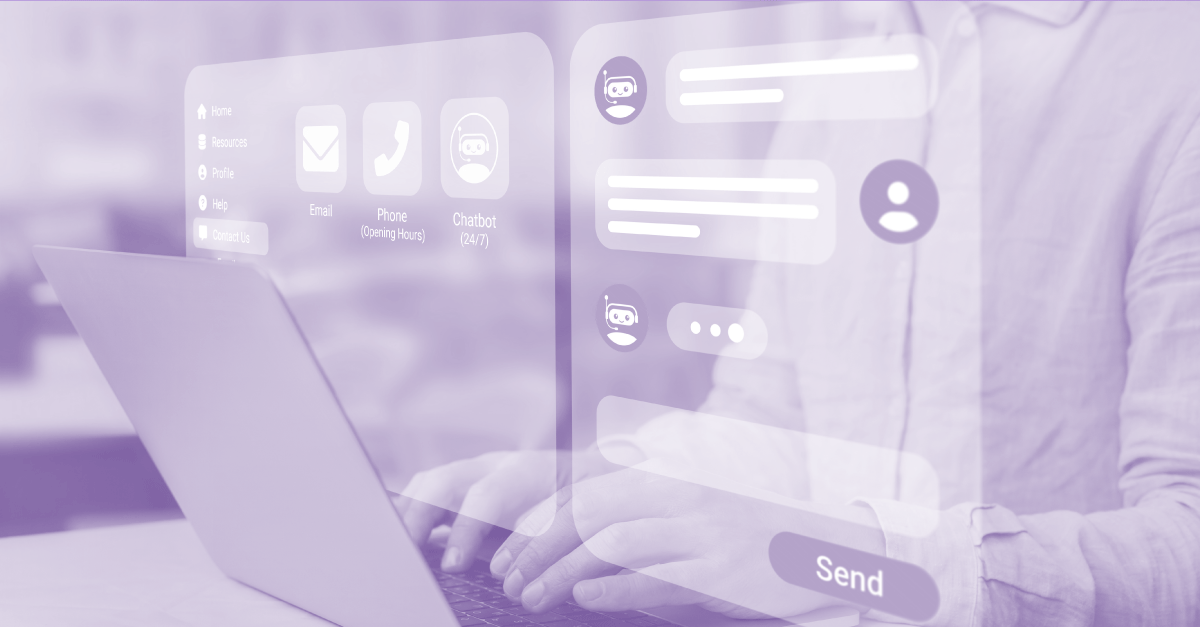How AI is Changing the Future of Marketing
November 9th, 2022

It’s no surprise that artificial intelligence has become a useful tool when it comes to marketing strategies. But what does this mean for the future? In this post, we’re going to explore how AI is changing the future of marketing, and what you need to think about when implementing these changes in your own company.
In today’s world, digital transformation is the name of the game. Marketing teams need to keep up with the speed of change and find innovative ways to reach customers. This is where artificial intelligence has stepped in, to become an essential part of any company looking to stay ahead in this fast-paced world.
AI has been around for some time now and is becoming more accessible to businesses everywhere. In fact, ‘Nine out of ten top companies are continuing to invest in AI’ (Business Wire). IT can analyze large amounts of data quickly and efficiently to identify patterns and trends. This means that marketers can ensure that they’re making informed decisions about key elements such as targeting audiences or creating more effective ads.
If you’re not sure how AI can impact your marketing decisions, let’s dive into how AI can be utilized, key areas where transformation is taking place, and how this will continue.
How is AI used by marketers?
AI plays a role in a variety of marketing activities, from ad targeting to content creation. Here are five major ways that AI is changing the marketing landscape.
1. Lead Generation
This technology uses machine learning algorithms to identify qualified leads based on data such as company website visits and purchasing history. This allows marketers to focus their sales efforts on the most likely buyers.
2. Personalization
From email marketing to in-store promotions, marketers can increase engagement and sales with AI-powered personalization. With AI, marketers can use data about their customers’ preferences and other trends in the market to tailor their content to specific audiences.
3. Real-time Marketing
AI-powered marketing campaigns can be customized based on customers’ purchase histories, location, or any other data they want to consider. With real-time marketing, marketers can respond to events as they happen, increasing their impact and relevance.
4. Predictive Analytics
Predictive analytics help marketers understand their customers’ behavior by looking at historical data and trends to predict future outcomes. AI makes it possible for marketers to access huge quantities of data quickly and use those insights to inform their decisions.
5. Content Creation
AI-powered content creation allows marketers to generate more content, using computer software to write articles and create video or audio content. This can help marketers create a larger volume of content without increasing the team’s workload.
4 Major Areas Where AI Is Changing Marketing
1. Customer Service
AI is making it easier for brands to provide top-notch customer service. AI can be used to gather data about customers’ interactions with a brand, providing insights that can be used to improve the experience.
2. Marketing Automation
Marketing automation makes it easier to manage your campaigns by following a set sequence of events. AI-based marketing automation software can use data to make predictions about customers’ needs and create personalized campaigns accordingly.
3. Audience Analysis
Marketing teams can use AI to analyze their customers’ behavior and demographics, allowing them to make better decisions about who to target. This data can also be used to inform content creation, helping marketers create more relevant and effective content.
4. New Channel Development
AI can help marketers identify new opportunities for their brands. This can be done through channel analysis, where marketers use data to find the best distribution channels for their products. It can also be used to create new products, like personalized shopping recommendations, that can increase engagement and sales.
How will AI continue to change marketing?
AI has only recently become more widely used in marketing, and it’s set to grow even more in the coming years. As more brands adopt AI, we’ll start to see more collaboration between AI systems, making it possible to scale marketing efforts even further.
We’ll also see more advanced forms of AI emerge, such as self-learning systems that can make even more decisions without manual input. This could include systems that can generate creative content on their own or recommend new marketing strategies.
As AI becomes more sophisticated, marketers will have the opportunity to scale their efforts without increasing costs. This could allow marketers to take on more projects and reach larger audiences without putting too much strain on the team.
3 things to remember about AI in marketing
1. AI isn’t a single technology
It’s made up of many different tools, including machine learning, natural language processing, and more. AI refers to the idea of systems being able to “think” for themselves, while these systems may use any number of different technologies to achieve this.
2. AI isn’t a single product
You don’t need to buy a single product or software to implement AI in your marketing strategy. There are many different tools available, tools that can be used in collaboration with your existing tools.
3. AI has different uses for different industries
While most people think of marketing when they hear about AI, this technology has many different applications in different industries. AI isn’t limited to a select few, it can be used to improve many different aspects across all types of fields to enhance business decisions.
Final thoughts
Artificial intelligence is about more than just computer-generated content and automated customer service. It’s about using data to make better marketing decisions in all areas of the process, from targeting the right customers to creating engaging content. Marketers have a wealth of data to use and are increasingly turning to AI to help make the most of it. Artificial intelligence is changing the way marketers create and distribute content, who they’re targeting, and how they measure success. If you’re interested in making your marketing efforts more efficient, then it may be time to consider how AI can help.
Ready to see what we can do for you?
In the right hands, artificial intelligence can take human performance to a hitherto unimaginable level. Are you ready for evolution?




